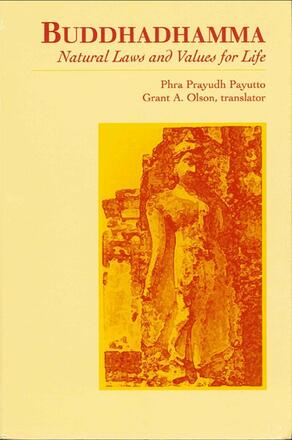
Buddhadhamma
Natural Laws and Values for Life
Alternative formats available from:
Written by one of the most highly regarded monk-scholars in Southeast Asia, this book is a modern distillation of the pivotal doctrines found in the Pali Buddhist canon.
Description
Written by a Thai, Theravada monk who has been recognized for his scholarly achievements, Buddhadhamma is a modern distillation of pivotal doctrines found in the Pali Buddhist canon. Many scholars of Buddhism in Thailand and beyond have said that if a person is not able to read the more than 40 volumes of the Pali Buddhist canon, then read this one book.
This volume—with a clear introduction that introduces the author and places him in the context of the history of the Thai Buddhist tradition—makes a significant contribution to the scant literature on Theravada Buddhism in English. One of the major contributions of this book is a detailed description of the Buddhist principles of causality, which will add to other works on this topic by modern Buddhist scholars. Furthermore, this book reveals the rational basis of the Buddhist worldview and contains an especially lucid discussion of the distinctive Buddhist notion of no-self and Buddhist "faith" or confidence based on inquiry.
Phra Prayudh Payutto has held the following ecclesiastical ranks and titles: Phra Maha Prayudh Payutto (1961); Phra Srivisuddhimoli (1969); Phra Rajavaramuni (1973); Phra Debvedi (1987); and Phra Dhammapitaka (1993). Grant A. Olson most recently held the post of Baring Foundation Lectureship in Thai Language and Thai Culture, Centre for South-East Asian Studies, University of Hull, England.
Reviews
"The book is a translation of the first edition of the magnum opus written by Thailand's most highly respected monastic intellectual. Thoroughly grounded in Pali text and commentary, it represents a contemporary transformation of classical Theravada thought and practice. " -- Donald K. Swearer, Swarthmore College